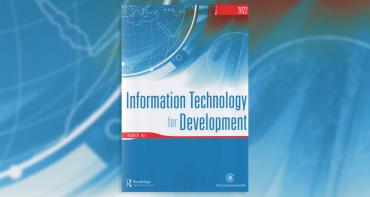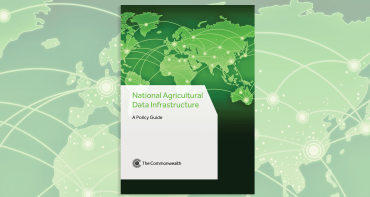Secretary-General’s addresses the Commonwealth Finance Ministers’ Meeting in Lima, Peru.

Honourable Ministers, country representatives and distinguished guests: good afternoon and welcome to the 49th Meeting of Commonwealth Finance Ministers.
Let me begin by first expressing my sincere gratitude to the Peruvian authorities and the IMF for their warm hospitality, excellent conference arrangements, and close cooperation in preparation for our meetings at this important juncture
I would also like to thank the OECD for their interest in collaborating with the Commonwealth, and I extend my personal welcome to a representative of the OECD Secretary-General, Mr Angel Gurría, who will deliver the keynote address on behalf of Mr. Gurria. Mr Gurria is unable due to unforeseen circumstances to deliver the keynote address this afternoon. You are most welcome and we look forward to hearing the OECD’s perspectives this afternoon. We are most appreciative of his participation.
We meet during a year of grand ambition for development. In July, the international community convened in Addis Ababa for the third United Nations (UN) International Conference on Financing for Development to agree the post-2015 financing framework, defining the contours of development financing for several years to come. With the 2030 Global Agenda for Sustainable Development now formally adopted and with the UNFCCC COP 21 Paris Meeting scheduled in December, this Commonwealth Finance Ministers Meeting allows us to consider these international developments and the Commonwealth accord required to address the implementation ambitions, opportunities and challenges associated with these global agendas.
We know the last few years have been tough on all member countries, but especially on those countries which can be classified as Small States with a number of natural disasters affecting them.
Over the last five years, we have also seen a steady decline in Commonwealth Funding for Technical Assistance, or CFTC, from £31 million in 2011-12 to a possible figure of £20 million for 2015-16. The CFTC funds have been crucial in providing developmental help to vulnerable member states. It is imperative that the Secretariat has the funds available to maintain this level of help to those states.
Board members agreed at the Board meeting in May 2014 that members would be given six months from April to September to indicate their CFTC pledges for the year so that the Commonwealth Secretariat had a firm base on which to budget and spend resources for the year. We will be taking a report to the Executive Committee next week which shows that only 20 member countries have made pledges to the CFTC fund by the agreed deadline of 30 September 2015. The total amount pledged to date is £11.8 million against a budget figure of £20 million. As it stands, if no further pledges are received, we will inevitably have to reduce the amount of work planned for this year, which will impact our member countries.
I would therefore urge Ministers to kindly ensure their countries get their pledges in to the CFTC fund so we can continue to deliver the work on the Strategic Plan objectives agreed by the Board.
Our primary agenda items for consideration today will be:
- International tax cooperation and initiatives to boost domestic revenues; and
- Opportunities and challenges for tapping emerging sources of infrastructure finance.
Tax
We are now living in a more interconnected and interdependent world than ever before. Global trade and cross-border financial flows have ballooned over the past three decades. Breakthroughs in telecommunications have linked communities in different parts of the world, thousands of miles apart. And, as nations work more closely together and economies are integrated more deeply, we are witnessing dramatic advancements in growth, with both positive and negative features of interdependence.
Taxation architecture
However, the international architecture governing taxation has struggled to keep pace with globalisation.
As the global community embarks on the era of post-2015 development and the emphasis on domestic resource mobilisation intensifies, it is clear that major reform is required if countries are to successfully secure and harness their tax bases.
In particular, measures to improve the effectiveness of tax administration and collection systems will be vital to equip governments to finance nationally-owned development strategies, deliver growth-promoting public services, work to create an effective enabling environment for development, and ultimately achieve a far more ambitious set of development goals.
Today, we will be considering international initiatives and, in particular, the work being undertaken by the OECD on Base Erosion and Profit Shifting and the Exchange of Information, to address the deficiencies present in the current international tax infrastructure. Mr Angel Gurría will be leading us in this discussion this afternoon.
These initiatives present significant opportunities but also different challenges across the Commonwealth and it is important that, as the global tax agenda evolves, the particular challenges faced by our smaller and less developed members, with relatively limited administrative capacity and under-developed legislative frameworks, are taken into account.
In this regard, we will evaluate a proposal for a Commonwealth platform to enable a more inclusive political discussion about international taxation that better reflects the disparate needs of our member countries – one which, in particular, reflects our resolve to work together to ensure that taxation systems extend beyond revenue generation alone, and help to boost state capacity to provide a platform for inclusive growth.
Infrastructure Finance
Our second major topic for discussion will be “New Sources of Infrastructure Finance”. In particular, we will consider the new opportunities for augmenting long-term infrastructure financing in the Commonwealth, our shared experiences in accessing infrastructure financing, and the constraints that must be overcome to upscale the use of emerging institutional investors for financing infrastructure development across the Commonwealth.
This represents a particularly timely discussion, as the new development framework now includes a specific goal on developing sustainable infrastructure. Furthermore, a new set of institutional investors, including several newly-launched Southern financial institutions, are just beginning to emerge.
Our discussions today will allow us to consider how best the Commonwealth can build and sustain new collaborative relationships with these institutions, noting in particular opportunities from the presence of several Commonwealth countries as founding members in these bodies, and the associated prospects for our smaller developing countries.
Financing SDGs
Finance for development issues have been a longstanding feature of Commonwealth Meetings. Ministers recognise that securing the necessary financing for sustainable development remains a challenge for the Commonwealth and also recognise the need to explore both additional mechanisms and sources of innovative finance. As you may recall at our Financing Ministers Meeting last year we released the innovative financing handbook to help developing Commonwealth countries identify and select financing options to boost their development plans. This toolkit is the first of its kind and documents sources of innovative finance for development in one place against a set of effective finance principles to help policy makers navigate the landscape and start matching mechanisms and sources of finance to fund particular development goals.
Building on this momentum, in Addis Ababa, at the UN’s Third Conference on Financing for Development, the Commonwealth discussed crowd funding and its potential for helping developing countries supplement financing from traditional capital markets to support private sector development and national investment strategies. Such innovative approaches we believe could be crucial for the financing of the SDGs. At the Commonwealth, we have also called on the international community to consider alternative means of financing climate change, including through providing debt relief and counter-cyclical loans.
Closing remarks
This gathering offers a valuable and timely opportunity to determine collective Commonwealth positions that can help us to address the challenges we now face at the start of this new era of development. To agree a collective way forward that prioritises inclusivity and promotes truly transformative intra-Commonwealth development.
Let us endeavour to pursue our deliberations today with this ambitious and strong resolve.
Election of Chair
Honourable Finance Minister Nene of South Africa agreed to Chair this meeting and we are most grateful to him for this commitment to CFMM.
I thank the Honourable Minister and invite him to take this meeting forward. Let us welcome him with acclamation.



